Why You *Shouldn't* Do a Breast Self Exam
Breast Cancer Awareness month has everyone buzzing about preventative healthcare—but according to the experts, this is a step you should skip.

Every day we take preventative measures to keep ourselves alive—we glance up from our emoji keyboards to look both ways before crossing the street (😵). We scream bloody murder at our co-worker with strep throat to stay 100 feet back. And we schedule doctor appointments for routine checkups.
But when it comes to doing a breast self-exam for lumps or weirdness—something our gynos have been telling us to do since day one—why are health experts so against it? "Most of the large breast cancer organizations do not recommend monthly breast self exams (BSEs) anymore," says Susan Brown, M.S., R.N., the managing director of health and mission program education at Susan G. Koman. "This came about after a 2002 study called the 'Shanghai study.'"
A little background: Researchers from that study wanted to determine whether intensive BSE programs—teaching 132,979 women breast anatomy, breast cancer statistics, detailed BSE technique and regularly following up with them—actually reduced the number of women dying from this disease as opposed to women (133,085) who did not receive this training. Between 1991 and 2000 scientists monitored both groups and in the end, 135 women died from breast cancer in the instructed group while 131 women died in the control set. As you can see, BSEs did nothing. In general, Brown also cites a lack of women *actually* doing these tests and poor technique when examining their bodies to fault BSEs.
But that doesn't mean it's all a lost cause. "We sill acknowledge women knowing what [their breasts] are normal is like," says Brown. "If you notice a change in how your breasts look or feel, you should seek out care from a healthcare provider." And that entails looking out for these signs:
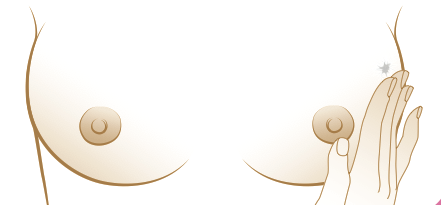
- Swelling, warmth, redness or darkness around your breast.
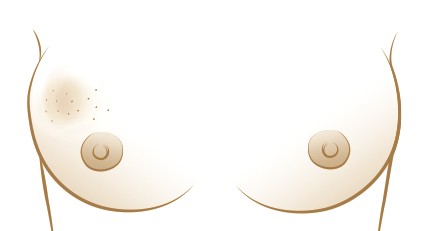
- Change in size and shape of your breast.

Get exclusive access to fashion and beauty trends, hot-off-the-press celebrity news, and more.
- Dimpling or puckering of your skin near your chest.
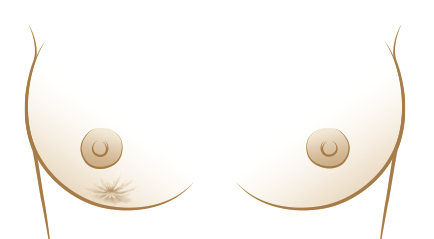
- Itchy, scaly sores or rashes on the nipple.
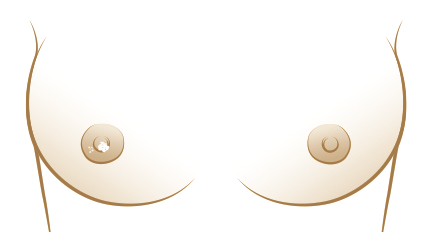
- Nipples or other parts of your breast pulling/caving in.
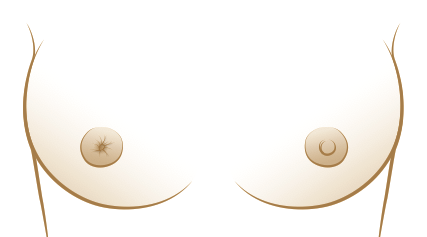
- Sudden nipple discharge.
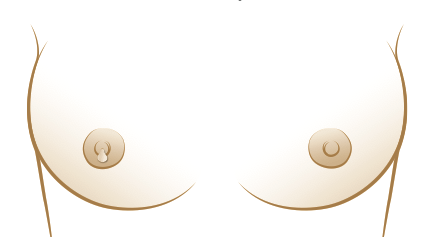
- New pain in a certain spot that doesn't go away.
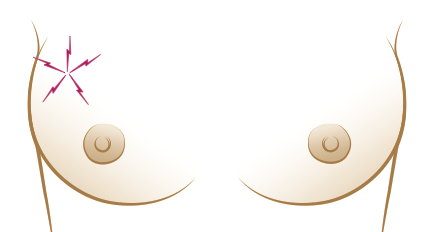
Even if none of those symptoms sound familiar to you, you should still talk to your parents about any possible history of breast cancer in your family—knowing your past can help your primary physician understand your potential risks.
If something above does strike a nerve, remain calm. Mammography—a common tool to locate breast lumps—is usually reserved as routine checkups for women in their 40s. Why not earlier? When you're in your 20s, your breasts are much denser, making it difficult for radiologists to spot any abnormalities—but mammograms may still be necessary should a doctor notice something troubling. Should you bring up concerns with your doc, they'll perform a clinical breast exam. Based off those results, they'll then most likely send you to an imaging center for a mammogram or a breast ultrasound. From those tests, a biopsy may be suggested, says Brown.
The only way to be absolutely sure breast cancer is the correct diagnosis is by getting tissues or cells examined through a biopsy. So until you go through all these measures, keep a close watch on your twins.
Follow Marie Claire on Instagram for the latest celeb news, pretty pics, funny stuff, and an insider POV.
When I'm not stalking future-but-never-going-to-happen husbands on Facebook, you can catch me eating at one of NYC's B-rated or below dining establishments—A-rated restaurants are for basics. Fun fact: Bloody Marys got me into eating celery on the regular. And for your safety, please do not disturb before 10 a.m. or coffee, whichever comes first.
